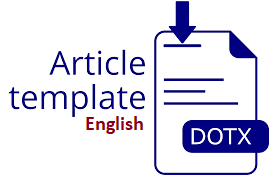Analisis Sentimen Terhadap Rangka E-SAF Honda Pada Media Sosial X Dengan Algoritma Naïve Bayes
DOI:
https://doi.org/10.30865/klik.v5i1.1993Keywords:
Sentiment Analysis; Frame; E-SAF; Naïve Bayes; RapidminerAbstract
Motorcycles are the best vehicles for traveling when traffic is heavy because motorcycles allow people to save time while going about their daily commute due to their small size and ability to move on narrow streets. An important component in a motorcycle is the motorcycle frame, the motorcycle frame is a useful part to support the weight of these components in the motorcycle vehicle system. However, it is rumored that a motorcycle frame with the E-SAF type has poor quality, so a sentiment analysis is needed. This research aims to collect the number of comments, both positive and negative, from social media users X about the E-SAF framework, and also to determine the accuracy of the application of the Naive Bayes method. The datasets collected from social media X amounted to 756 datasets. Then after going through the stages of data cleaning such as cleansing, tokenize, and stopword filters, the data that can be used for this research amounted to 696 datasets. The next stage is data labeling, namely by dividing the dataset with a ratio of 60:40, namely 60% of the training data totaling 417 datasets that have been manually labeled with the results of 224 negatively charged data, 193 positively charged data while the test data is 40% with a total of 279 datasets which will later be automatically labeled with the implementation of the Naive Bayes method. The next stage is that the test data goes through the data processing stage so that the test data is ready to be implemented into the Naive Bayes method. After implementing the Naive Bayes method, the accuracy obtained was 70.27% with a precision of 76% and also a recall of 79.17%. There was also a true Positive data of 57 and a true Negative data of 21. Data Visualization also displays words that appear frequently in the dataset. Here it shows that the Naive Bayes method is quite effective for the classification of sentiment analysis
Downloads
References
S. Anwar and Mujito, “Faktor-Faktor Yang Mempengaruhi Keputusan Pembelian Motor Merek Yamaha Di Kota Bogor,” JIMKES Jurnal Ilmiah Manajemen Kesatuan, vol. 9, no. 1, pp. 189–202, 2021.
R. Setiawan, D. Sugiyanto, and ari Daryus, “ANALISIS SIMULASI KEKUATAN DAN PEMBUATAN RANGKA KENDARAAN SEPEDA MOTOR LISTRIK Analysis of Strength Simulation and Frame Fabrication of Electric Motorcycle Vehicle,” Jurnal Konversi Energi dan Manufaktur, vol. 8, no. 1, pp. 58–66, 2023.
Endro Sutarno, “Mengenal Rangka eSAF Pada Sepeda Motor Honda,” HERONUSA HONDA. Accessed: Nov. 01, 2023. [Online]. Available: https://heronusahonda.com/?p=1467
Y. Akbar and T. Sugiharto, “Analisis Sentimen Pengguna Twitter di Indonesia Terhadap ChatGPT Menggunakan Algoritma C4.5 dan Naïve Bayes (Yuma Akbar 1*, Tri Sugiharto 2 ) Analisis Sentimen Pengguna Twitter di Indonesia Terhadap ChatGPT Menggunakan Algoritma C4.5 dan Naïve Bayes,” Jurnal Sains dan Teknologi, vol. 5, no. 1, pp. 115–122, 2023, doi: 10.55338/saintek.v4i3.1368.
A. Safira, A. S. Masyarakat…?, and F. N. Hasan, “ANALISIS SENTIMEN MASYARAKAT TERHADAP PAYLATER MENGGUNAKAN METODE NAIVE BAYES CLASSIFIER,” Jurnal Sistem Informasi, vol. 5, no. 1, 2023.
D. P. Ray, F. N. Hasan, and A. R. Dzikrillah, “KLIK: Kajian Ilmiah Informatika dan Komputer Analisis Sentimen Terhadap KPU 2024 Berdasarkan Tweet Media Sosial Twitter Menggunakan Algoritma Naïve Bayes,” Media Online, vol. 4, no. 4, pp. 2235–2243, 2024, doi: 10.30865/klik.v4i4.1587.
I. Gusti, A. Indrawan, D. Ayu, I. Cahya Dewi, I. A. Putu, and A. Wisdantini, “Analisis Sentimen Terhadap Presidensi G20 2022 pada Media Sosial Twitter Menggunakan Metode Naïve Bayes,” KLIK: Kajian Ilmiah Informatika dan Komputer, vol. 4, no. 1, pp. 553–561, 2023, doi: 10.30865/klik.v4i1.1104.
D. Duei Putri, G. F. Nama, and W. E. Sulistiono, “Analisis Sentimen Kinerja Dewan Perwakilan Rakyat (DPR) Pada Twitter Menggunakan Metode Naive Bayes Classifier,” Jurnal Informatika dan Teknik Elektro Terapan, vol. 10, no. 1, Jan. 2022, doi: 10.23960/jitet.v10i1.2262.
I. R. Afandi, F. Noor, H. #2, A. A. Rizki, N. Pratiwi, and Z. Halim, “Analisis Sentimen Opini Masyarakat Terkait Pelayanan Jasa Ekspedisi Anteraja Dengan Metode Naive Bayes,” Jurnal Linguistik Komputasional (JLK), vol. 5, no. 2, pp. 63–70, 2022, [Online]. Available: https://t.co/2HAdwg1drL
R. Hidayat, A. B. Hakim, and R. Nugraha, “Perbandingan Metode Naïve Bayes Dan Decision Tree C4.5 untuk Analisis Sentimen Produk Es Teh Indonesia di Media Sosial Twitter,” Jurnal Sistem Komputer dan Kecerdasan Buatan, vol. 7, no. 2, pp. 88–98, 2024.
F. F. Rachman and S. Pramana, “Analisis Sentimen Pro dan Kontra Masyarakat Indonesia tentang Vaksin COVID-19 pada Media Sosial Twitter,” 2020.
H. Derajad Wijaya and S. Dwiasnati, “Implementasi Data Mining dengan Algoritma Naïve Bayes pada Penjualan Obat,” JURNAL INFORMATIKA, vol. 7, no. 1, 2020, [Online]. Available: http://ejournal.bsi.ac.id/ejurnal/index.php/ji
Y. Severianus and S. Kolo, “ANALISIS SENTIMEN TERHADAP OPINI MASYARAKAT TERKAIT PERUBAHAN CUACA DI INDONESIA MENGGUNAKAN ALGORITMA SUPPORT VECTOR MACHINE,” 2024.
D. Ismiyana Putri and M. Yudhi Putra, “KOMPARASI ALGORITMA DALAM MEMPREDIKSI PERUBAHAN HARGA SAHAM GOTO MENGGUNAKAN RAPIDMINER,” Jurnal Khatulistiwa Informatika, vol. 11, no. 1, 2023, [Online]. Available: https://www.kaggle.com/,
Z. Setiawan et al., BUKU AJAR DATA MINING. Jambi: PT. Sonpedia Publishing Indonesia., 2023.
R. Ardiansyah Yudhanegara, N. Aliya Hana, S. Yonanda Mahfiridho, and A. Rosadi Kardian, “Perbandingan Resident Set Size dan Virtual Memory Size Algoritma Machine Learning dalam Analisis Sentimen,” JURNAL MEDIA INFORMATIKA BUDIDARMA, 2024, doi: 10.30865/mib.v8i1.7201.
P. W. Rahayu et al., Buku Ajar Data Mining, Cetakan Pertama. Jambi: PT. Sonpedia Publishing Indonesia., 2024.
S. Syafrizal, M. Afdal, and R. Novita, “Analisis Sentimen Ulasan Aplikasi PLN Mobile Menggunakan Algoritma Naïve Bayes Classifier dan K-Nearest Neighbor,” MALCOM: Indonesian Journal of Machine Learning and Computer Science, vol. 4, no. 1, pp. 10–19, Dec. 2023, doi: 10.57152/malcom.v4i1.983.
J. S. Gea and H. Budiati, “Analisis Sentimen Masyarakat Terhadap Direktorat Jenderal Pajak,” JURNAL SAINS DAN KOMPUTER, vol. 8, no. 01, pp. 30–36, Jan. 2024, doi: 10.61179/jurnalinfact.v8i01.466.
A. T. Mukti and F. N. Hasan, “Analisis Sentimen Warganet Terhadap Keberadaan Juru Parkir Liar Menggunakan Metode Naive Bayes Classifier,” JURNAL MEDIA INFORMATIKA BUDIDARMA , pp. 644–653, 2024, doi: 10.30865/mib.v8i1.6982.
E. Dwi Nugraha and G. Gata, “Penerapan Algoritma KNN Pada Twitter Untuk Analisis Sentimen Masyarakat Terhadap Event MotoGP Di Sirkuit Mandalika,” Seminar Nasional Mahasiswa Fakultas Teknologi Informasi (SENAFTI) Jakarta-Indonesia, 2022.
C. Cahyaningtyas, Y. Nataliani, and I. R. Widiasari, “Analisis sentimen pada rating aplikasi Shopee menggunakan metode Decision Tree berbasis SMOTE,” AITI: Jurnal Teknologi Informasi, vol. 18, no. Agustus, pp. 173–184, 2021.
N. Luh, P. P. Dewi, I. Nyoman Purnama, and N. W. Utami, “Penerapan Data Mining Untuk Clustering Penilaian Kinerja Dosen Menggunakan Algoritma K-Means (Studi Kasus: STMIK Primakara),” Jurnal Ilmiah Teknologi Informasi Asia, vol. 16, no. 2, 2022.
Hartati, H. Deni, M. Akhsanal, Z. Wahyudi, A. Ariyanto, and D. D. Saputra, “Optimasi Analisis Sentimen Pada Twitter Olshop Tokopedia Menggunakan Textmining Dengan Algoritma Naïve Bayes & Adaboost,” Jurnal Sains Komputer & Informatika (J-SAKTI), vol. 6, no. 2, pp. 821–828, 2022.
Syahril Dwi Prasetyo, Shofa Shofiah Hilabi, and Fitri Nurapriani, “Analisis Sentimen Relokasi Ibukota Nusantara Menggunakan Algoritma Naïve Bayes dan KNN,” Jurnal KomtekInfo, vol. 10, no. 1, pp. 1–7, Jan. 2023, doi: 10.35134/komtekinfo.v10i1.330.
Bila bermanfaat silahkan share artikel ini
Berikan Komentar Anda terhadap artikel Analisis Sentimen Terhadap Rangka E-SAF Honda Pada Media Sosial X Dengan Algoritma Naïve Bayes
ARTICLE HISTORY
Issue
Section
Copyright (c) 2024 Akbar Cleary Syafi'i, Ade Davy Wiranata

This work is licensed under a Creative Commons Attribution 4.0 International License.
Authors who publish with this journal agree to the following terms:
- Authors retain copyright and grant the journal right of first publication with the work simultaneously licensed under Creative Commons Attribution 4.0 International License that allows others to share the work with an acknowledgment of the work's authorship and initial publication in this journal.
- Authors are able to enter into separate, additional contractual arrangements for the non-exclusive distribution of the journal's published version of the work (e.g., post it to an institutional repository or publish it in a book), with an acknowledgment of its initial publication in this journal.
- Authors are permitted and encouraged to post their work online (e.g., in institutional repositories or on their website) prior to and during the submission process, as it can lead to productive exchanges, as well as earlier and greater citation of published work (Refer to The Effect of Open Access).
















